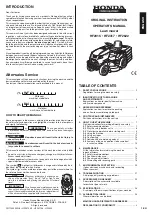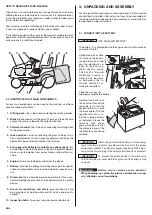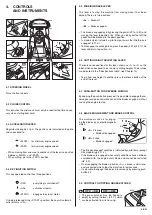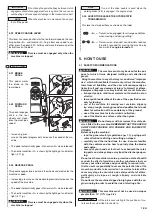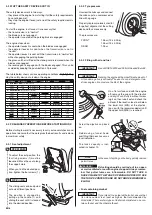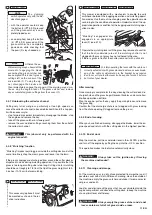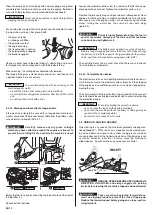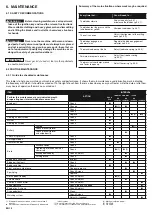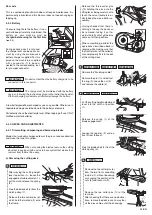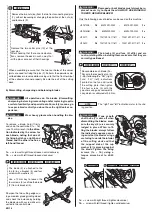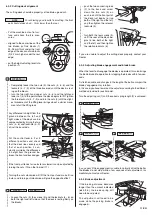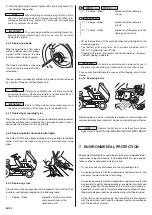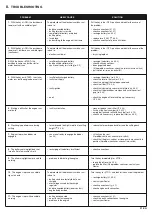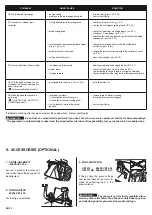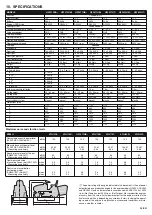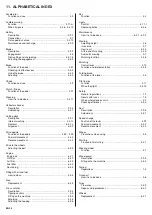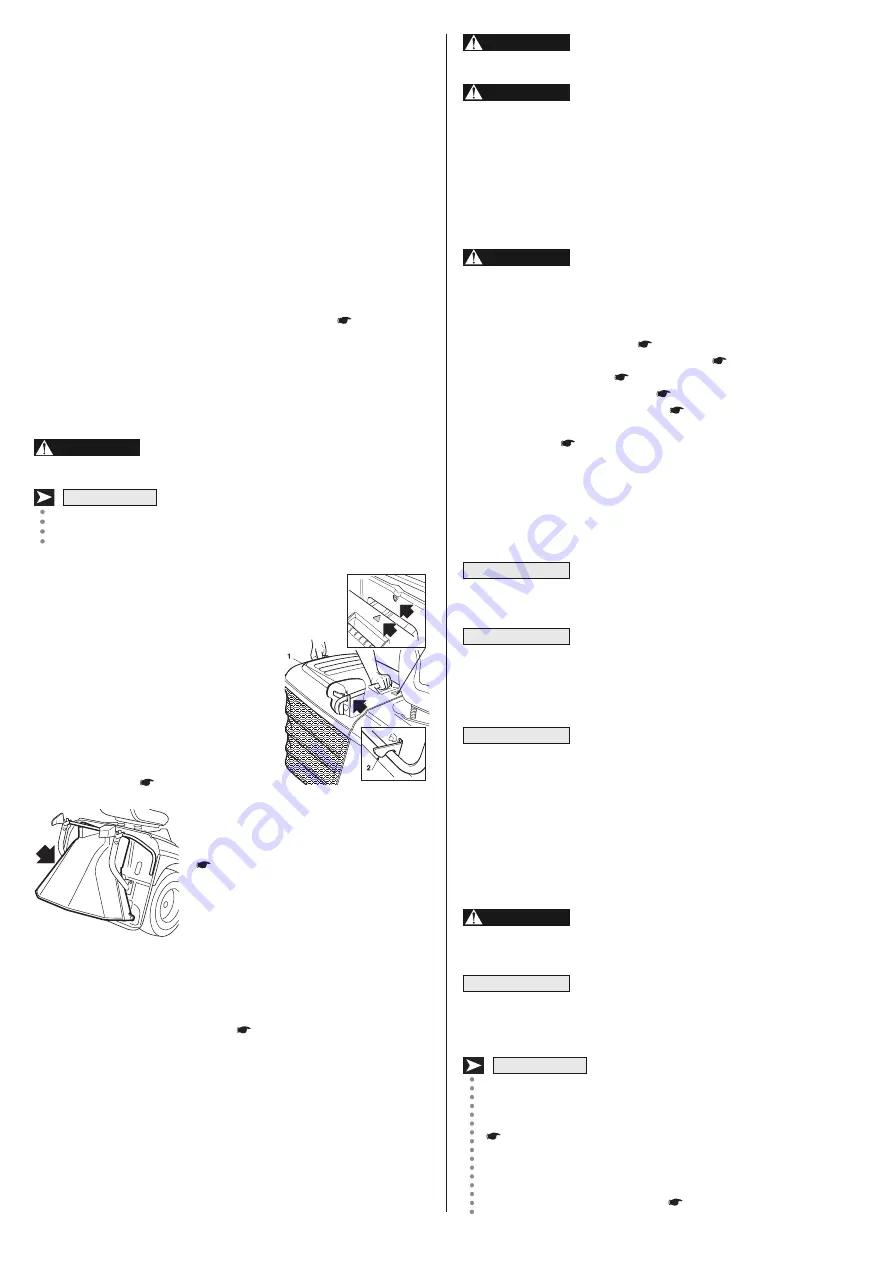
Wear heavy gloves when handling the
blades.
Disengage drive to attachments, stop the en-
gine and remove the ignition key before cleaning, checking or
working on the machine.
5.4 USING THE MACHINE
5.4.1 Starting
All starting operations have to be effected in
an open or well-ventilated area! ALWAYS REMEMBER THAT
THE ENGINE’S EXHAUST FUMES ARE TOXIC!
To start the engine:
– engage the parking brake (
4.5), on sloping ground;
– put the transmission into neutral («N») (
4.22 or 4.32/33);
– disengage the blades (
4.8);
– if started cold, use the choke (
4.2);
– position the accelerator lever (
4.3) between «SLOW» and
«FAST»;
– put in the key (
4.4), and turn to «ON» to make electrical contact,
then turn to «START» to start the engine;
– release the key once the engine has started.
When the engine has started, put the accelerator in the «SLOW» po-
sition and close the choke (if fitted).
The choke must be closed as soon as the engine
is running smoothly. Using it when the engine is already warm can
foul the spark plug and cause the engine to run erratically.
Should you have difficulties in starting do not per-
sist with using the starter motor as this can run down the battery or
flood the engine.Turn the key to the «OFF» position, wait for a few
seconds and then repeat the operation.Should the malfunction per-
sist, refer to chapter «7» of this manual.
Always bear in mind that the safety devices pre-
vent the engine starting when:
– the blades are engaged;
– the transmission is not in neutral («N»).
– the operator is absent with the parking brake disengaged.
In these cases, once the situation has been corrected, the key must
first be turned back to «OFF» before the engine can be restarted.
5.4.2 Forward drive and moving without mowing
This machine has not been approved for use
on public roads. It has to be used (as indicated by the High-
way Code) in private areas closed to traffic.
When moving the machine, the blades must be
disengaged and the cutting deck put at its highest position (posi-
tion «7»).
Put the accelerator control between the «SLOW» and «FAST» po-
sitions, and the gear change lever in the 1st speed position
(
4.22).
Keep the pedal pressed down and disengage the parking brake.
Slowly release the pedal which will turn from «brake» to «clutch»,
thus operating the rear wheels (
4.21).
HF2315SB•
WARNING!
WARNING!
NOTE
WARNING!
IMPORTANT
NOTE
IMPORTANT
DANGER!
Do not use mixtures containing more than 10% ethanol, or fuel con-
taining methanol (methyl or wood alcohol), which do not contain co-
solvents, or corrosion inhibitors for methanol.
In the case of a mixture containing methanol with addition of co-
solvents and corrosion inhibitors, limit the proportion to 5% of
methanol.
The guarantee does not cover damage caused to the fuel system
or engine performance problems resulting from the use of fuel
containing alcohol. Honda does not give its approval to the use of
fuels containing methyl alcohol since their suitability is not yet
proven.
5.3.4 Checking the braking system
Make sure that the machine’s braking capacity is adequate for the
conditions of usage.Avoid starting the machine if you have doubts on
the brake efficiency. If necessary, adjust the brake (
6.3.4). If you
still have doubts about its efficiency, contact your Dealer.
5.3.5 Fitting the protection devices at the exit
(grass-catcher or stone-guard)
Never use the machine without having fitted
the protection devices at the exit!
The protection devices must be fitted with the tipping levers low-
ered.
Attach the grass-catcher inserting the up-
per tube of the frame into the slots of the
2 brackets (1).
To centre the grass-catcher correctly, align
the two symbols on the grass-catcher and
on the back plate
Make sure that the lower tube of the open-
ing of the grass-catcher hooks onto the
pawl (2).
If the hook is too stiff or too loose, adjust
the return spring (
6
.3.6).
If you would like to mow without using the
grass-catcher, an optional stone-guard kit
(
9.2) is available on request.This has
to be attached to the rear plate as indi-
cated in the relevant instructions.
5.3.6 Checking the effectiveness of the safety devices
Check that the safety systems are working properly by simulating the
various situations of usage listed (
5.2) and making sure that the
indicated result is achieved for each situation.
5.3.7 Checking the blades
Check that the blades are sharpened properly and firmly fixed to their
hubs.
– A badly sharpened blade pulls at the grass and causes the lawn
to turn yellow.
– A loose blade causes unusual vibrations and can be dangerous.
HF2•••HT•
WARNING!
9 EN

